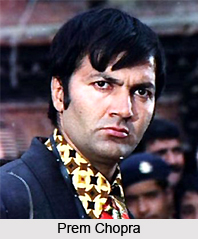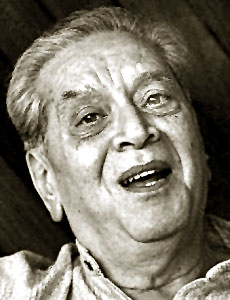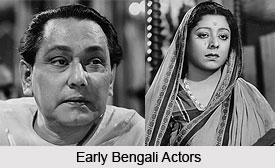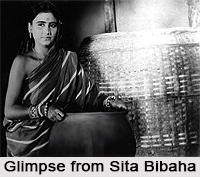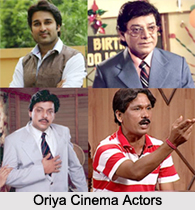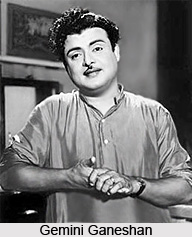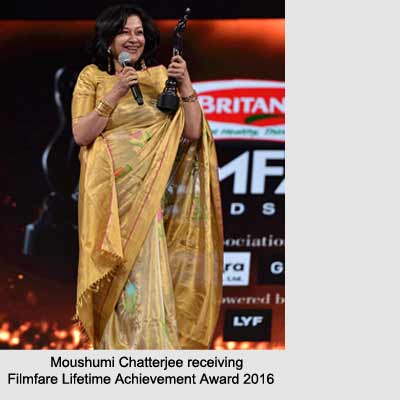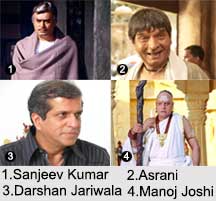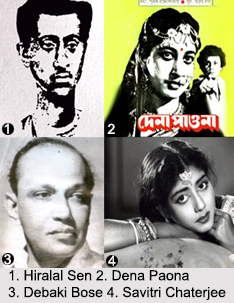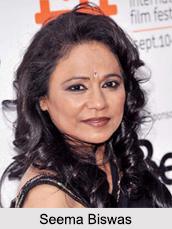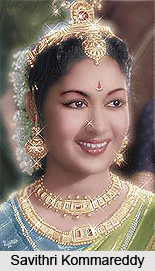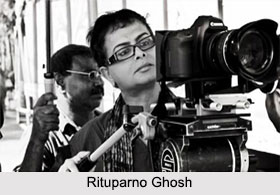 Rituparno Ghosh was an Indian film director, actor, writer and lyricist in Bengali Cinema. He made his debut in films in the year 1992, directing the Bengali film "Hirer Angti". In 1994, his next film "Unishe April" released, which won the National Film Award for Best Feature Film. A self-professed Satyajit Ray fan, Rituparno Ghosh inspired other film makers like Mithaq Kazimi who adapted his film "Raincoat" in English. In a career spanning nearly two decades, Ghosh won 12 National Film Awards and many international awards. His unreleased Bengali film "Sunglass" was honoured and released at the 19th Kolkata International Film Festival. Ghosh breathed his last on May 30, 2013 in Kolkata, after suffering a heart attack.
Rituparno Ghosh was an Indian film director, actor, writer and lyricist in Bengali Cinema. He made his debut in films in the year 1992, directing the Bengali film "Hirer Angti". In 1994, his next film "Unishe April" released, which won the National Film Award for Best Feature Film. A self-professed Satyajit Ray fan, Rituparno Ghosh inspired other film makers like Mithaq Kazimi who adapted his film "Raincoat" in English. In a career spanning nearly two decades, Ghosh won 12 National Film Awards and many international awards. His unreleased Bengali film "Sunglass" was honoured and released at the 19th Kolkata International Film Festival. Ghosh breathed his last on May 30, 2013 in Kolkata, after suffering a heart attack.
Early Life and Education of Rituparno Ghosh
Rituparno Ghosh was born on August 31, 1963 in Kolkata, West Bengal, into a Bengali Hindu family. His father, Sunil Ghosh, was a documentary film maker and painter. He completed his schooling at South Point High School, and later earned a degree in Economics from Jadavpur University, Kolkata.
After completing his graduation in Economics, Ghosh began his career in advertising, as a creative artist at the Response India advertising agency, and became known as an especially effective copywriter in Kolkata, particularly noted for composing succinct, appealing one-liners and slogans for ad campaigns in Bengali during the 1980s. At the time, the trend in Kolkata was to translate all-India advertisement campaigns originally composed in English and Hindi into Bengali. Ghosh won recognition for his ability to initiate campaigns in Bengali. Few of his noted ad campaigns were "Sharad Samman" and "Bongo Jiboner Ango" for the antiseptic ointment Boroline and others for Frooti, the largest selling mango drink in India. Some commentators noted that his power to appeal to consumers through ad campaigns helped make his films appeal to wider audiences, particularly to middle class Bengalis. In 1990, Rituparno got his first break in a documentary film when his own agency, Tele-Response, a member of the Response family of companies, was commissioned to make a documentary on Vande Mataram for Doordarshan.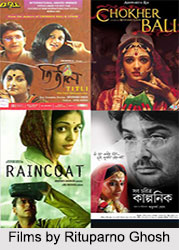
Direction Career of Rituparno Ghosh
Rituparno Ghosh made his feature film directorial debut with the Bengali family-oriented film "Hirer Angti", based on a novel of the same name written by Shirshendu Mukhopadhyay about inheritance and conjuring tricks. It released in 1992, featuring Moon Moon Sen, Basanta Choudhury, and Pradip Mukherjee. Ghosh"s second film `Unishe April`, starring Aparna Sen, Debashree Roy, Prosenjit Chatterjee and Dipankar Dey, released in 1994 and went on to win 2 National Film Awards in 1995, including the Golden Lotus Award for Best Feature Film. Portraying the relationship of an award winning dancer and her emotionally abandoned daughter who aspires to be a doctor, it also achieved commercial success. His next film, `Dahan`, based on the true story of a woman who was molested on a street in Kolkata and of another woman, a witness who came forward to bring legal action against the perpetrators but became frustrated by the callousness of society including the victim`s family, released in 1997 and won him the National Film Award for Best Screenplay.
In 1999, "Asukh" released wherein Ghosh dealt with the relationship between a young film star and her father who depends unwillingly on his daughter`s earnings. The film won the National Film Award for Best Feature Film in Bengali. `Bariwali` released in 2000, starring Kirron Kher, Rupa Ganguly and Chiranjeet Chakraborty. It portrayed a lonely and withdrawn widow played by Kher, who rents out her large house for a film production and fantasises about the charming but very much married director, who flirts with her but, predictably, disappoints her. Kher won the National Film Award for Best Actress for her portrayal. The same year, "Utsab" released dealing with the decadence of a large family whose members live away from the ancestral home and meet only during the traditional Durga Puja. It won Ghosh the National Film Award for Best Direction. The 2002 film "Titli" was a narrative about a mother-daughter relationship, where the teenage daughter has a crush on an older film star who had had an affair with her mother.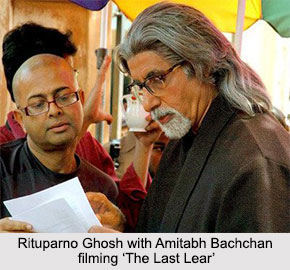
In 2002, "Shubho Mahurat" released, a whodunit based on Agatha Christie"s book "The Mirror Crack`d from Side to Side". Featuring veteran actresses Raakhee and Sharmila Tagore alongside Nandita Das, it won the National Film Award for Best Feature Film in Bengali. The following year, Ghosh released his drama film "Chokher Bali", based on a novel written by Rabindranath Tagore, featuring Bollywood actress Aishwarya Rai alongside Prosenjit and Raima Sen. In 2004, his first Hindi film, `Raincoat`, an adaptation of O. Henry"s short story "The Gift of the Magi", was released. The director worked with Aishwarya Rai again in the film, the shooting of which completed in 17 days. It received the National Film Award for Best Feature Film in Hindi. In 2005, the Bengali film `Antar Mahal` released. Set in British India, it revolved around a land-owning ("zamindari") family, with Jackie Shroff playing the Zamindar, alongside Soha Ali Khan and Rupa Ganguly who played the Zamindar`s wives. In 2006, his black-and-white drama film "Dosar" released, featuring Prosenjit and Konkona Sen Sharma. It was premiered at the 60th Cannes Film Festival, 2007, in the Les Cinema Du Monde section.
Ghosh"s 2007 English film "The Last Lear" revolved around the life of a retired Shakespearean theatre actor. Starring Amitabh Bachchan in the lead role alongside Preity Zinta and Arjun Rampal playing supporting roles, the film won the National Film Award for Best Feature Film in English. His 2008 film, "Khela", was Manisha Koirala`s debut in Bengali cinema. Later the same year, `Shob Charitro Kalponik`, starring Bipasha Basu and Prosenjit, got released and won the National Award for Best Feature Film in Bengali. It was selected for the 30th Durban International Film Festival and screened in the Marche du Film section of the 2009 Cannes Film Festival. In 2009, his film `Abohoman`, starring Jisshu Sengupta, Ananya Chatterjee, Dipankar Dey and Mamata Shankar released and won him his second National Film Award for Best Direction. In 2011, his Bengali period film "Noukadubi" released based on a novel by Rabindranath Tagore of the same name, featuring Prosenjit Chatterjee, Jisshu Sengupta, Raima Sen and Riya Sen. In 2012, "Chitrangada: The Crowning Wish" released where the director narrated the story of a choreographer who is struggling with his gender identity. It premiered at the New York Indian Film Festival in May 2012 and won Rituparno the National Film Award - Special Jury Award.
Just before his death, Rituparno Ghosh had finished production work on his last film, `Satyanweshi`, a Bengali mystery thriller based on Bengali detective Byomkesh Bakshi, which released in September 2013. In November that year, Ghosh"s Hindi-Bengali bilingual "Sunglass" ("Taak Jhaank" in Hindi) that was shot in 2006 but didn"t have a theatrical release, was opened at the 19th Kolkata International Film Festival inauguration, as a tribute to the legendary director. He also had an unreleased documentary "Jeevan Smriti: Selective Memories", on Rabindranath Tagore based on Tagore`s autobiography, in which he acted as well.
Personal Life of Rituparno Ghosh
Rituparno Ghosh was one of the very few openly homosexual people in Indian cinema. He was considered an icon of the LGBT community in India.
Death of Rituparno Ghosh
Rituparno Ghosh suffered from Diabetes mellitus type 2 for ten years, and Pancreatitis for five years. He also experienced insomnia and had been taking medication for it. According to Dr. Rajiv Seal of Fortis Hospitals, who had been his physician for almost two decades, Rituparno was also facing complications from hormone treatments after Abdominoplasty and breast implant operations that he underwent for his role in Kaushik Ganguly`s `Arekti Premer Golpo`, playing a transgender filmmaker. Ghosh died at his Kolkata residence on May 30, 2013, post a massive heart attack, aged 49.
Related Articles:
Indian Film Directors
Indian Movie Actors
Indian Movie Lyricists
Bengali Cinema
Satyajit Ray
English Films in India
National Film Awards
Documentary Films in India
Indian Films at Cannes Film Festivals








